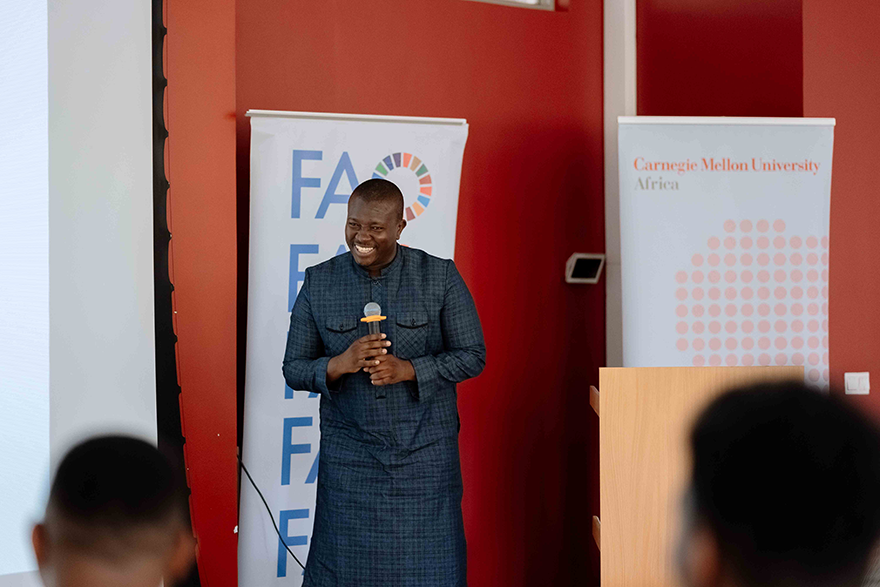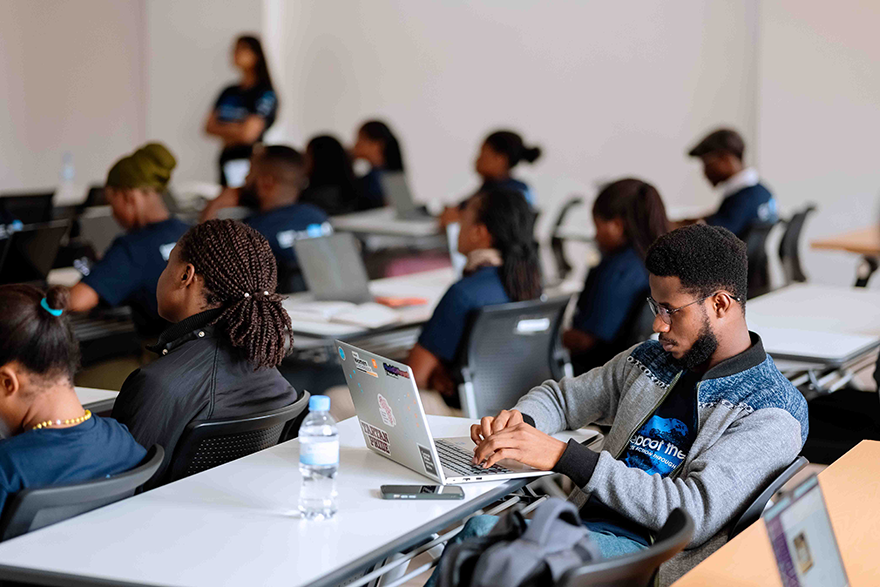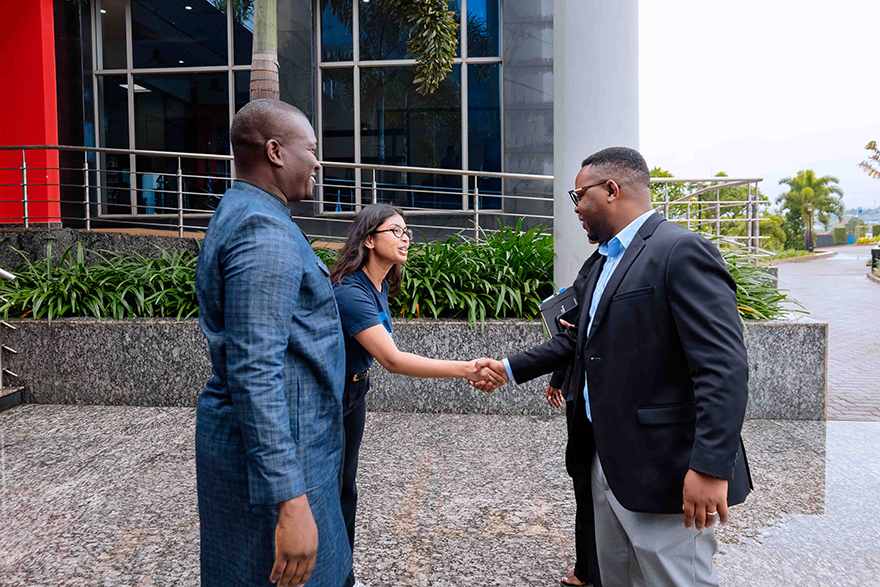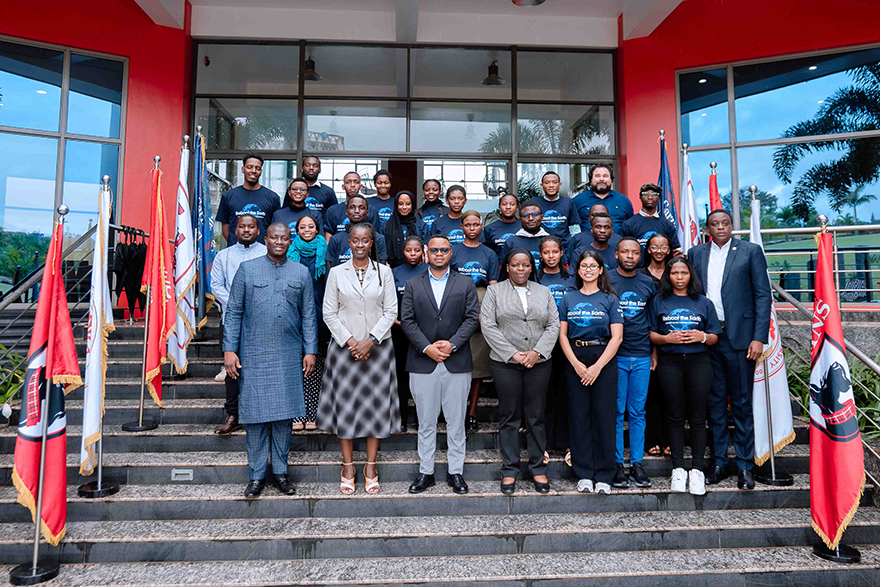Reboot the Earth fosters a new intercontinental partnership
CMU’s OSPO and the Upanzi Network spark a new partnership at the United Nation’s Reboot the Earth hackathon.
From May 7–8, Carnegie Mellon University Africa hosted a social coding event called Reboot the Earth, a climate-tech innovation challenge organized by the United Nations Office of Information and Communications Technology. For just 48 hours, the hackathon charged participants with developing open-source solutions to address current climate challenges. This year’s event focused on creating advancements in agriculture and AI that support the UN’s Sustainable Development Goals.
In partnership with Salesforce, the Digital Public Goods Alliance, the Food and Agriculture Organization, CMU’s Open Source Programs Office (OSPO), and the Upanzi Network at CMU-Africa, Reboot the Earth brought together student innovators from the University of Rwanda and CMU-Africa. Together in teams, students developed novel approaches for optimizing the transport of agricultural commodities.

Source: CMU-Africa
Assane Gueye speaks at Reboot the Earth in Kigali.
“One of the exciting things about all seven teams is that they were taking issues that they had seen throughout Africa, in their communities, from their own personal and professional backgrounds, and bringing them to the hackathon,” said OSPO Community Manager Tom Hughes, who served as one of the judges for the hackathon in Kigali.
The winning team, Hinga Transit, proposed using an AI chatbot to help connect rural farmers looking to sell their goods with truck drivers who could transport them to a desirable market. Hinga Transit will receive six months of mentorship from Salesforce and UN stakeholders along with support from OSPO to help augment their solution.

Source: CMU-Africa
Student innovators work to develop novel approaches for optimizing the transport of agriculture commodities.
The event also cultivated a partnership between the Upanzi Network and the Open Source Programs Office—a collaboration both organizations are eager to build on.
“The Upanzi Network is the obvious partner between OSPO and CMU-Africa,” said Hughes. “From the OSPO’s perspective, we’re really excited to continue to engage and find more partners across the globe and connect them with CMU-Africa to build off of the success and help connect them to exciting initiatives like the Upanzi Network.”
The Upanzi Network is the obvious partner between OSPO and CMU-Africa.
Tom Hughes, Community Manager, OSPO
OSPO, a relatively new initiative in academia, works to help universities disseminate and produce accessible open-source technologies on a global scale. CMU’s OSPO, directed by Sayeed Choudhury, is looking to leverage the university’s research and educational expertise to engage in and support the development of open-source software.
“The mission of CMU’s OSPO is to help identify, manage, and share open-source software for greater impact with research, education, and community engagement. The OSPO is based in the CMU Library, so it naturally serves multiple communities,” said Choudhury. “The UN hackathon at CMU-Africa was a natural and strategic opportunity for OSPO to advance its mission and support the Upanzi Network.”

Source: CMU-Africa
Assane Gueye and Mithusa Kajendran of the UN Office of Information and Communications Technology greet Yves Iradukunda, permanent secretary of the Ministry of ICT and Innovation.
As CMU-Africa works to educate the future leaders and innovators in Africa, events like Reboot the Earth and intercontinental collaborations further enhance the university’s commitment to developing and promoting digital public goods.
“One spirit of CMU-Africa is local solutions by local people,” said Assane Gueye, co-director of the Upanzi Network. “This event is really echoing that, and it’s very aligned with the CMU-Africa vision. It definitely positions us as one of the leaders when it comes to technology solutions for Africa.”

Source: CMU-Africa
Student participants and speakers at the Reboot the Earth competition.
The Reboot the Earth competition takes place around the world between April and October each year.
Photo, top: From left, Assane Gueye, Fatmata Lovetta Sesay, Yves Iradukunda, Nomathemba Mhlanga, and Mithusa Kajendran, and an employee from the Ministry of ICT pose for a photo at the Reboot the Earth competition.
